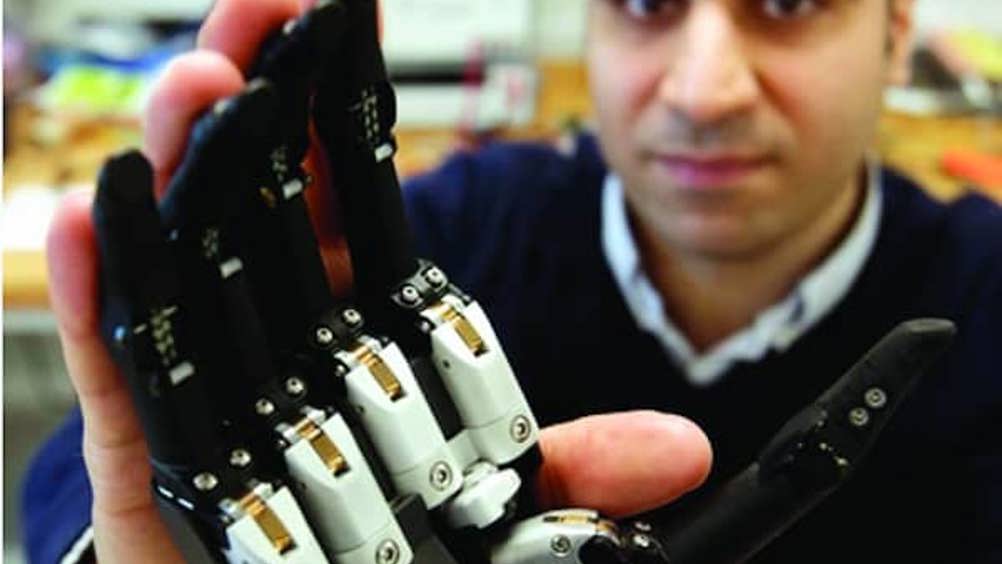Spring studies receive £5.3m to develop assistive and rehabilitative devices
A prosthetic hand that provides sensory feedback is one of three projects to share £5.3m in funding to develop assistive and rehabilitative devices.

The funding, from EPSRC, will also see the development of robotic clothing to help people with walking, and biosensors to monitor how patients use equipment or exercise during rehabilitation.
The three projects start work in the spring and are led by the Universities of Newcastle, Bristol, and Warwick working with 15 other university partners.
In a statement, Philip Nelson, chief executive of EPSRC said: ‘These research studies will improve patients’ lives, allow greater independence and benefit patients with a wide range of mobility and co-ordination difficulties.
‘With the UK’s ageing population and a rise in disabilities, this highlights one area of EPSRC investment in healthcare research which has a national impact.’
A team led by Newcastle University will use £1.4m to develop a prosthetic hand that will give users a sense of feedback.
According to EPSRC, the team will build fingertip sensors to give the prosthesis a realistic sense of touch, including pressure, shear and temperature. In addition, a so-called ‘virtual hand’ will provide proprioceptive information related to the hand’s position and movement. The system will also translate the signals to a form the brain understands and stimulate the nervous system to help the user control the hand.
Register now to continue reading
Thanks for visiting The Engineer. You’ve now reached your monthly limit of news stories. Register for free to unlock unlimited access to all of our news coverage, as well as premium content including opinion, in-depth features and special reports.
Benefits of registering
-
In-depth insights and coverage of key emerging trends
-
Unrestricted access to special reports throughout the year
-
Daily technology news delivered straight to your inbox










Water Sector Talent Exodus Could Cripple The Sector
Maybe if things are essential for the running of a country and we want to pay a fair price we should be running these utilities on a not for profit...